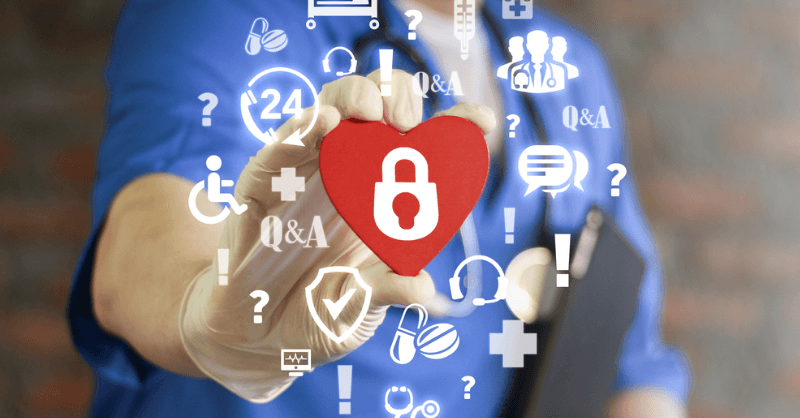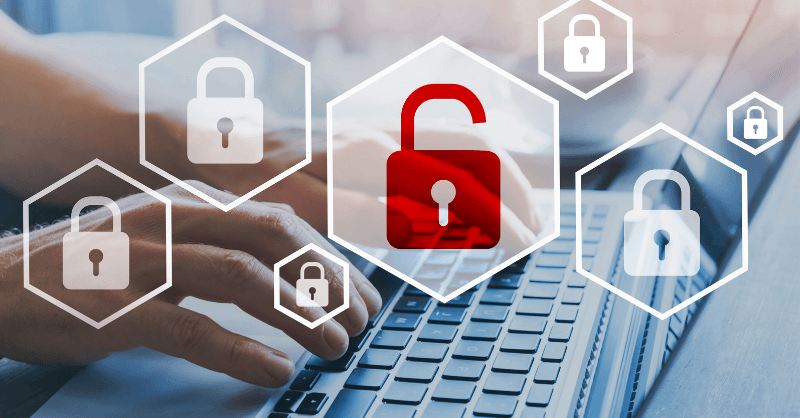We are often concerned about confidentiality in health and social care, how much of the personal details we should share with our health and social care providers. We think twice before sharing our information with even our closest people. When we tell the much-needed data to our care provider, we fear there is a chance they will leak the word out.
As a part of health and social care providers, it is necessary to maintain the client’s information privacy. It upholds a service provider’s professionalism and ensures that the client’s data is safe with them. Clients will be more comfortable to take the service.
Confidentiality in the health and social care sector is the legal right of every person. Health and social care providers need to acknowledge and follow the government’s rules and institute policy to ensure clients’ privacy.
Table of Contents
What is Confidentiality
Confidentiality is the practice of keeping sensitive information private and secure. It ensures that personal or sensitive details shared in confidence are not disclosed to unauthorized individuals or entities. This safeguarding measure builds trust and fosters open communication in various settings, including healthcare, counseling, and legal matters.
What is Confidentiality in Health and Social care?
Confidentiality in Health and Social care means keeping the personal and intimate information provided by service takers private. Information shared should only be disclosed when necessary, and it should not come to the ear or sight of people who don’t have anything to do with the service taker or the information.
Information that should be kept secrete are:
- Any verbal details about personal stuff.
- Patients or clients personal or clinical history
- Photographs or files that share personal information.
- Any kind of video or audio recording that is a violation of privacy
- Any sort of details that clients didn’t show consent to share publicly
In order to disclose information of a person which is very important, it should only be given to the closest of relatives or to the person whom the service taker has given consent to share his or her information.
Wherever possible, client privacy must be reserved, but it is also important to realise in what condition it can be disclosed. This may include in a situation like when referring a person to other professionals who will be part of their treatment or care service.
Confidentiality is one of the cornerstones of communication in health and social care service. It ensures trusts and security. Our course Communication Skills in Health and Social Care covers confidentiality in health and social care service in detail. The course is designed to teach any medically trained individual to refine their English communication and workplace ethics.
3 Ways Clients are offered Confidentiality in Health and Social Care:
- Through the laws of the government
- Through contracts and professional policy of an organisation.
- Through the professional code of conduct and acceptable practices.
The Health and Social Care Information Centre ( HSCIC) said in their published guide-
“Health and social care is being transformed so that each individual can have greater control of their own care. There has been an explosion of information produced by the increase in internet use, social media and electronic information systems and we want patients and service users to be able to take advantage of this. This makes protecting confidential information the starting point if people and professionals are to feel confident about the security and appropriateness of information sharing.”
Why is confidentiality important in health and social care?
Confidentiality develops trust between the patient and the doctor. The patient needs to share all their needs, history and detail to recover quickly with proper care. Confidentiality ensures that the patient is entirely free with the practitioner and shares their problems without hesitation.
Furthermore, keeping private information confidential is necessary to avoid criminal activities. There are criminal out there who might use these pieces of information like bank account number, address, personal photographs to take advantage of the service take.
Health and Social Care Level 3 Certification Course – CPD Accredited is a valued course that helps an individual gain deep insight into health and social care related topics. It is easy to understand and doctors, nurses or nursing assistants, surgeons or
Healthcare workers can take advantage of this course to do better in their profession.
Confidentiality Policies and Procedures in Health and Social Care
Many policies are concerned with a person’s confidentiality in health and social care. As a Health and social care practitioner, one needs to be aware of all these rules and procedures to secure confidentiality.
What are the Confidentiality Rules in Health and Social Care?
According to A guide to confidentiality in health and social care published by the Health and Social Care Information Centre (HSCIC), here are five main rules to obey:
1. Confidential information provided by any clients should be treated with respect and with confidentiality.
Treating confidential or private information with trust and respect should be a priority as it ensures safety and effective care. People believe that the information they are giving to their care provider is safe with them and can benefit from a full treatment or service.
Gossiping or prying on a client’s personal life or sharing information publicly or with someone who has nothing to do with the client is considered unethical. If anyone is found violating the rules will be punished accordingly by the laws of the organisation.
A key part of confidentiality is that all the documents and files that the caregiving team members provide are complete and correct. While creating reports of the clients, the medical information should be processed privately.
2. Caregiving team members should only discuss information when it ensures the safety and proper care of the client.
Confidential information should be shared with another member when used to ensure the client’s wellbeing. One should only share information with the members who are working for the client. The team may include doctors, nurses, lab staff who may carry tests, social workers etc.
This ensures that clear information regarding client treatment is passed to the team members who look after the clients well-being. Furthermore, not sharing information may lead to incomplete treatment or service.
In case of what information should be shared and with whom, professionals should discuss it with their client how to disclose the information if the need comes. They should both discuss what information should be shared, what circumstances the information and to whom the information will be shared.
The information should only be shared for the client’s betterment and sharing irrelevant while private data should be avoided.
Caregivers should also share information that seems like a threat to the client, but the client does not consent to share the information.
3. Data that is shared for the advantage of society should be provided anonymously.
Much information regarding clients anatomy might be useful for research that is working on the betterment of society. In that case, the client’s consent should be taken at first and the client’s identity must be kept secret.
Even when the information is shared anonymously, it has to be given to some trusted authority who will also take care of the information. Information shouldn’t be used for mischievous purposes.
Confidential information may need to be used under extraordinary situations, but this requires the permission of the client or other legal ground that permits or regulates sharing.
In case of a legal obligation to disclose confidential information, a caregiver and the client might have to agree with the legal authority. This too shall be carried out officially and privately by a legal officer.
Individual who is sharing the information has the right to know:
- What private document of them is kept.
- Who will have the authority to access the information and who will it be provided to.
- The reason for which it is needed
- Present an objection to sharing private information.
4. If an individual does not give consent to share particular pieces of information, that should be respected.
Clients are entitled to object to the use or exchange of sensitive information outside their care. If a person objectifies to share information with others, it is mandatory to follow that unless it may cause harm to the client.
By all means, an individual’s say on preserving their privacy should be honoured. If an objection is made to the disclosure of confidential information, it can be exchanged anonymously.
In exceptional situations where an objection’s possible implications pose a risk, the objection might be overruled with proper explanation.
5. To follow confidentiality rules, organisations must ensure that they have an adequate system for maintaining confidentiality.
Organisations must ensure adequate protection, legislation, procedures and training and education for employees of the organisational and technical structures to ensure secure and proper sharing of sensitive information.
An authoritative person of the organisation should ensure that all the policies and rules regarding confidentiality are strictly followed.
An organisation may complete an Information Governance Toolkit Assessment (IGT) so that employees know what rules to follow. They should also ensure that if confidentiality policies are breached there ways to report them and authoritative action is taken against it.
What are the Legislations Covering Confidentiality in the Health and Social Care Sector?
Health and social workers need to stay updated with the latest rules and regulations of confidentiality that are lawfully given.
The Common Law of Confidentiality
The Common Law of Confidentiality encourages people to come ahead with their issues without fearing the violation of their privacy. It is not particularly made for Health and social care service, but they fall under it.
But there are instances where the caregiver can override the confidentiality law if it protects and ensures the client’s safety.
The Human Rights Act 1998
The Human Rights Act 1998 gives everyone the right to live their life private and respect other personal and family lives. People can withhold their private information and are not obliged to share it. The law can only be overridden if not sharing confidential information will cause serious consequences.
The Care Act 2014
The Care Act of 2014 is placed to encourage the caregiver to speak up without hesitation about information which is confidential but also puts the clients or service user at risk. This is all about safeguarding and enhancing the freedom and well-being of people. It was created in the light of standing against domestic violence and abuses that commonly used to go unreported.
Consent must always be taken before sharing the confidential information, but if the clients object, it can also be overridden if it is putting the client or caregiver in danger.
The information that is shared should be accurate, necessary, relevant and timely.
A record of information should be kept of the information that is exchanged in what condition.
The Health and Social Care (Safety and Quality) Act 2015
According to The Health and Social Care (Safety and Quality) Act 2015, a caregiver can share information with another professional caregiver to seek better advice or in order to refer a client. It is to ensure the safety and quality of the clients, other professionals may provide better care, and a transfer of caregiver is necessary.
The Data Protection Act & GDPR 2018
The Data Protection Act and the GDPR uphold the rules on how organisations like charities and businesses can collect and use personal data. Every information that caregiving organisations take is included under this protection.
According to GDPR, information should be used and collected in the following ways:
- Used legally, honestly and transparently
- Obtained for stated and valid reasons
- Information should be collected only to the point where it is necessary, relevant, adequate and limited.
- Information should be authentic.
- The information should be obtained in a protected manner, and also proper measure should be taken against accidental loss.
When Confidential Information must be disclosed?
Though the earlier words have already talked about when Confidential information should be disclosed, it is necessary to say it openly and more straightforwardly. In caregiving facilities maintaining complete confidentiality is not compulsory. It can be overridden on a situation like:
- Confidential information must be disclosed if it is to safeguard a client. If the information shows a witness that the client is at risk, the information must be disclosed.
For example, a nurse takes care of an old lady in a household on the night shift. One day the nurse finds out that there are bruises on the old lady’s body. The lady says the daycare nurse hit her for not doing what the nurse asked her to do when asked. But the old lady insisted not the night shift nurse to tell anyone. In this case, the night shift nurse must talk to higher authority even if they are breaching confidentiality rules.
- On the other hand, if the client is trying to impose any harm on others or the caregiver, the confidential information should be disclosed.
For example, a nurse is looking after an alcohol addict. He discovers that the person is drunk and plans to drive to the drug store later on. As drinking and driving are illegal, the nurse has to inform the police breaking the confidentiality law.
- If there is legal pressure to disclose any information to the client, this should be done after consulting the caregiver’s legal advisor or supervisor.
For example, if a police officer is investigating a doctor about a patient’s medical history, but the doctor is unsure if they should share the information without consent, the doctor can seek their legal advisor or ask the client for their support.
In any case, the situation should be discussed between caregiving teams who are working closely with the client.
Related:
1. Why is Transformational Leadership Important in Healthcare?
2. The Importance of Effective Communication Skills in Healthcare
3. 10 Best Ways to Look After Your Mental Health
4. Air Pollution: How It Affects Student Health and Academic Performance
5. The Importance of Health and Wellness Training
What are the Dos and Don'ts of Confidentiality in Health Care?
Many situations regarding confidentiality are about applying common sense. Here are some practices that can be followed while handling confidential information.
Dos
|
Don’ts
|
Last Thought
Confidentiality is the human right of every person. Health and social care people work closely with their clients’ private lives and often come across confidential information. Handling the information correctly, which protects the patient’s trust, is a work of responsibility and should be done carefully. Keeping the five confidentiality rules in mind and following the confidentiality laws will help caregivers deal with confidentiality professionally.







 March 30, 2021
March 30, 2021








